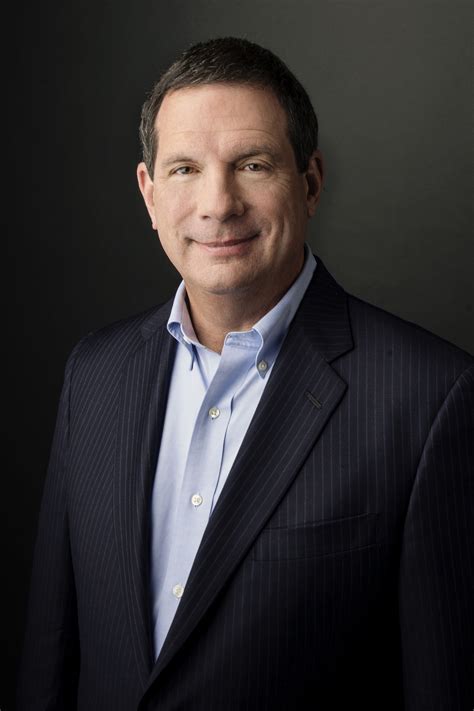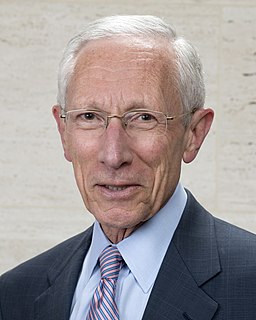Top 1200 Intellectual Growth Quotes & Sayings - Page 8
Explore popular Intellectual Growth quotes.
Last updated on December 19, 2024.
Everything that is great in life is the product of slow growth; the newer, and greater, and higher, and nobler the work, the slower is its growth, the surer is its lasting success. Mushrooms attain their full power in a night; oaks require decades. A fad lives its life in a few weeks; a philosophy lives through generations and centuries.
I would be remiss, as a scientist who studied this, if I didn't mention the following two things: The first is that, most importantly, we need to do, as a society, in this country and globally, whatever we can to reduce population"....."Our whole economic system is based on growth, and growth of our population, and this economic madness has to end.
Divine Providence is connected with Divine intellectual influence, and the same beings which are benefited by the latter so as to become intellectual, and to comprehend things comprehensible to rational beings, are also under the control of Divine Providence, which examines all their deeds with a view of rewarding or punishing them. ...the method of which our mind is incapable of understanding.
I am simply in favor of intellectual hospitality-that is all. You come to me with a new idea. I invite you into the house. Let us see what you have. Let us talk it over. If I do not like your thought, I will bid it a polite "good day." If I do like it, I will say: "Sit down; stay with me, and become a part of the intellectual wealth of my world."
At Zappos, one of our core values is to Pursue Growth and Learning. In the lobby of our headquarters, we have a giving library where we give away books to employees and visitors that we think will help with their growth, both personally and professionally. I can't wait to add The Compound Effect to our library.
If outside forces and culture were the reasons behind declining and non-influential churches, we would likely have no churches today. The greatest periods of growth, particularly the first-century growth, took place in adversarial cultures. We are not hindered by external forces; we are hindered by our own lack of commitment and selflessness.
The economy has settled into a sustainable, self-reinforcing growth path, .. All major categories of the economy have contributed to economic growth. Now that businesses have begun to add to payrolls, the current expansion is self-reinforcing. Only external shocks, such as terrorist attacks or a surge in oil prices, could derail the recovery.
In pursuing personal growth, there are issues where we can advance just so far by ourselves. At some point, our continued progress and improvement can only come about through relationships with others. Romantic love is an intense and intimate exposure to another person; if we can be who we want to be, even in that context, then our spiritual growth is exponentially expanded.
Liberty, according to my metaphysics, is an intellectual quality, an attribute that belongs not to fate nor chance. Neither possesses it, neither is capable of it. There is nothing moral or immoral in the idea of it. The definition of it is a self-determining power in an intellectual agent. It implies thought and choice and power; it can elect between objects, indifferent in point of morality, neither morally good nor morally evil.
Russia and China have maintained that people prize stability over freedom and that as long as the central State creates conditions for economic growth, people will be complacent and will be willing to literally sell away their rights. In fact, this very economic growth will eventually catch up with these regimes.
Yet friendship, I believe, is essential to intellectuals. It is probably the growth hormone the mind requires as it begins its activity of producing and exchanging ideas. You can date the evolving life of a mind, like the age of a tree, by the rings of friendship formed by the expanding central trunk. In the course of my history, not love or marriage so much as friendship has promoted growth.
The single biggest stimulus to the economy are the unemployment benefits we're paying. These people go out and they spend the money. They go out and they have to get by to everything from paying their mortgage or buying food or just getting by. It has a significant impact on economic growth and the continuation of economic growth.
Arthur Schlesinger, Jr., in a mordant protest written soon after the [1952] election, found the intellectual "in a situation he has not known for a generation." After twenty years of Democratic rule, during which the intellectual had been in the main understood and respected, business had come back into power, bringing with it "the vulgarization which has been the almost invariable consequence of business supremacy.
For several centuries Western civilization has had a drive for material accumulation, continual extensions of economic power, termed 'progress'...The longing for growth is not wrong. The nub of the problem is how to flip over, as in jujitsu, the magnificent growth energy of modern civilization into a nonacquisitive search for deeper knowledge of self and nature.
Words of divine consciousness: moral exaltation; lasting feelings of elevation, elation, joy; a quickening of the moral sense, which strikes one as more important than an intellectual understanding of things; an alignment of the universe along moral lines, not intellectual ones; a realization that the founding principle of existence is what we call love, which works itself out sometimes not clearly, not cleanly, not immediately, nonetheless ineluctably.
We humans undergo two major growth spurts: one during infancy and another from eleven to twelve until fifteen or sixteen--pubescence. Between the two is a relatively quiescent growth period in which most of the body takes a rest from growing while the brain continues to mature. This period of life is general referred to as childhood or, sometimes, latency.
No society can sustain unlimited growth - none ever has. History demonstrates that expectations of infinite growth lead to collapse. Unfortunately, millennia of evidence also indicates that needed attempts to stabilize such societies run counter to the expectations of the populace and of interest groups. For that reason, such attempts at stabilization frequently fail.
Growth isn't central at all, because I'm trying to run this company as if it's going to be here a hundred years from now. And if you take where we are today and add 15% growth, like public companies need to have for their stock to stay up in value, I'd be a multi-trillion-dollar company in 40 years. Which is impossible, of course.
Year after year, we have had to explain from mid-year onwards why the global growth rate has been lower than predicted as little as two quarters back. This pattern of disappointment and downward revision sets up the first, and the basic, challenge on the list of issues policymakers face in moving ahead: restoring growth, if that is possible.
It turns out that advancing equal opportunity and economic empowerment is both morally right and good economics. Why? Because discrimination, poverty and ignorance restrict growth. We know that investments in education, infrastructure and scientific and technological research increase growth. They increase good jobs, and they create new wealth for all of us.
Economic growth is the key to everything. But once you have economic growth, it is important that we reach out to people who live in the shadows, the people who don't seem to ever think that they get a fair deal. And that includes people in our minority community; that includes people who feel as though they don't have a chance to move up.
Sheep farming is heavily subsidized in Great Britain. Without the subsidies, the green grazing in the valley of the River Exe would be gone. The handsome agricultural landscape of which the British are so proud, carefully husbanded since Boudicca's day, would be replaced by natural growth. The most likely growth is real-estate developments.
My advice would be, as you consider fiscal policies, to keep in mind and look carefully at the impact those policies are likely to have on the economy's productive capacity, on productivity growth, and to the maximum extent possible, choose policies that would improve that long-run growth and productivity outlook.
Our efforts for inclusive growth are holistic and not piecemeal; well planned and not knee jerk reactions; not for small changes but for quantum leap; making people the partners in growth not just beneficiaries; addressing the local needs by using global ideas and technology. And this is why our efforts in e-governance have been applauded the world over.
The conventional explanation for Jewish success, of course, is that Jews come from a literate, intellectual culture. They are famously "the people of the book." There is surely something to that. But it wasn't just the children of rabbis who went to law school. It was the children of garment workers. And their critical advantage in climbing the professional ladder wasn't the intellectual rigor you get from studying the Talmud. It was the practical intelligence and savvy you get from watching your father sell aprons on Hester Street.
Life as a therapist is a life of service in which we daily transcend our personal wishes and turn our gaze toward the needs and growth of the other. We take pleasure not only in the growth of our patient but also in the ripple effect—the salutary influence our patients have upon those whom they touch in life.
Without the heart to ground it and open it to who we really can be as human beings, the brain is a very dangerous machine. A machine that is saying: we've got to have economic growth; we've got to have unending economic growth, otherwise societies will collapse. And yet there should be something saying: wait a minute, this isn't going to work.
I'm just challenging white supremacy at its intellectual heart every day. It's a pedagogy that I deploy against some of the most vicious resistance to blackness that whiteness is able to throw up. I engage in a lot of intellectual combat with supremacists and with the predicate of white supremacy and white indifference to black identity, and brown and red and yellow identity too, for that matter.
The Federal Reserve's objectives of maximum employment and price stability do not, by themselves, ensure a strong pace of economic growth or an improvement in living standards. The most important factor determining living standards is productivity growth, defined as increases in how much can be produced in an hour of work.
To be equitable, economic growth has to be sustainable. To be sustainable, economic growth has in turn to be all-inclusive. All-inclusive is no longer the greatest good of the greatest number. It is actually 'Sarvodaya' or the 'rise of all'. This Mahatma Gandhi saw as essential to Satyagraha itself.
We had made a - sort of a national decision that we wanted to be this intellectual property country, where we would have things manufactured in China, but we would do the design, we would do the creative stuff.And now what we have done is, we have forgotten that that's what we wanted, and we're making the intellectual stuff more and more free. And, so, we're sort of left with less and less.
If you're talking about intellectual and social equality for women, we're not much better off.America is still very much a male-dominated society. Most American men feel threatened sexually unless they're taller than the female, more intellectual, better educated, better paid and higher placed statuswise in the business world. They've got to be the authority, the final word.
Children should not be coddled in their intellectual training any more than in their physical; and though the studies should be made interesting the interest should arise out of the studies themselves. We have bred a generation that cannot digest anything intellectual but tablets of peptonized food. One sees that in the popular papers with their brevity, still increasing in brevity as far as brevity can increase, and in the capacity for thought of our rulers.
The progressive growth of the finite consciousness of man towards this Self, towards the universal , the eternal, the infinite, in a word his growth into spiritual consciousness by the development of his ordinary ignorant natural being into an illumined divine nature, this is for Indian thinking the significance of life and the aim of human existance.
I think what is true is that there's been an underlying division in the United States. Some of it has to do with the fact that economic growth and recovery tends to be stronger in the cities and in urban areas. In some rural areas, particularly those that were reliant on manufacturing, there has been weaker growth, stagnation, people feeling as if their children won't do as well as they will.
Brand-name growth stocks ordinarily command the highest p/e ratios. Rising prices beget attention, and vice versa - but only to a point. Eventually their growth rate can diminish as results revert towards normal. Maybe not in all cases, but often enough to make a long-term bet. Bottom line: I wouldn't want to get caught in a rush for the exit, much less get left behind. Only when big growth stocks fall into the dumper from time to time am I inclined to pick them up - and even then, only in moderation.
As the opportunity grows for unlimited growth and progress, the chances of failure increase. There is no such thing as a program that will provide security and growth and progress with no risk . . . even within the church. As freedom for unrestricted development is enhanced, the possibilities for failure are also increased. The risk factor is great.
The people who see the population explosion in the Malthusian way - as a geometric progression - forget that population growth is not a biological issue. People are not increasing in numbers out of stupidity and ignorance. Population growth is an ecological phenomenon linked very intimately to other issues, such as the usurpation of the resources which allow people to live.


























































